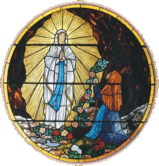
Apart from the Sacraments of Initiation the other sacraments are:

These sacraments celebrate the healing power of Jesus.
These sacraments help members serve the community.
Those who approach the sacrament of Penance obtain pardon from God's mercy for the offense committed against him, and are, at the same time, reconciled with the Church which they have wounded by their sins and which by charity, by example, and by prayer labours for their conversion (CCC1422).
The Sacrament of Reconciliation is a celebration of God’s love and mercy. It celebrates the call to repentance after a process of conversion of heart. It, along with the Anointing of the Sick, are the two sacraments of healing.
Reconciliation is a process of confessing our sins and receiving the forgiveness of God through the ministry of the priest. Through this process, a person is reconciled with the Church and continues to live as a disciple of Jesus Christ.
There are three forms of the celebration of penance.
Individual Reconciliation (Rite I) is usually celebrated on Saturday afternoon beginning at 4.45pm and may be arranged at other times by appointment. This Rite is meant to give people the opportunity for personal prayer and individual spiritual direction to enable them to ‘set their lives on track’!
Communal Reconciliation (Rite II) is usually celebrated in parish communities during Advent and Lent and at other appropriate times during the year.
Anointing of the Sick is a source of healing and comfort for the sick.
The Sacrament enables those anointed with the oil of the sick, to experience the healing and strength of Jesus Christ.
The sacrament may be celebrated at special Masses or during Mass twice a year at Lent and Advent, or at a hospital or nursing home, or in the person’s home. It is a sign that the church community offers those who are sick support through faith and prayer.
Relevant dates for these Masses will be published in Parish Notices and on the News and Events webpage.
In Matrimony a baptized couple are united with each other as a sign of the unity between Jesus and his Church. Matrimony requires the consent of the couple, as expressed in the marriage promises. The couple and their wedding rings are the signs of this sacrament.
Church teaching and law states three important provisions in regard to marriage:
At least three months notice and preparation is required before the marriage ceremony. Couples must participate in a Diocesan approved Pre-Nuptial program. For more information please contact the Parish Office.
Couples interested in getting married at Our Lady of Lourdes should contact the Parish Office to ask about parish wedding guidelines. Service guidelines, music lists, and musician information are available to help you plan the Mass/Service.
In Holy Orders men are ordained as priests, deacons, or bishops. Priests serve as spiritual leaders of their communities, and deacons serve to remind us of our baptismal call to help others. Bishops carry on the teachings of the apostles.
The signs of this sacrament are the laying on of hands and anointing with oil by the bishop.Holy Orders or Ordination gives the ordained person a sacred power in the name and authority of Christ and through the Holy spirit, to serve the people of God. Vocation comes from the Latin word vocare, which means that God calls, we respond. Everyone has a vocation - to love God. But we pray that more people will receive the call to Holy Orders.
If you are interested in finding out more about becoming a Catholic Priest, the first step is to make contact with your local Catholic Parish, or another Catholic Parish that you are likely to attend, or speak with the vocation ministers for the Toowoomba Diocese. Or contact the Parish Office on (07) 4634 1453.